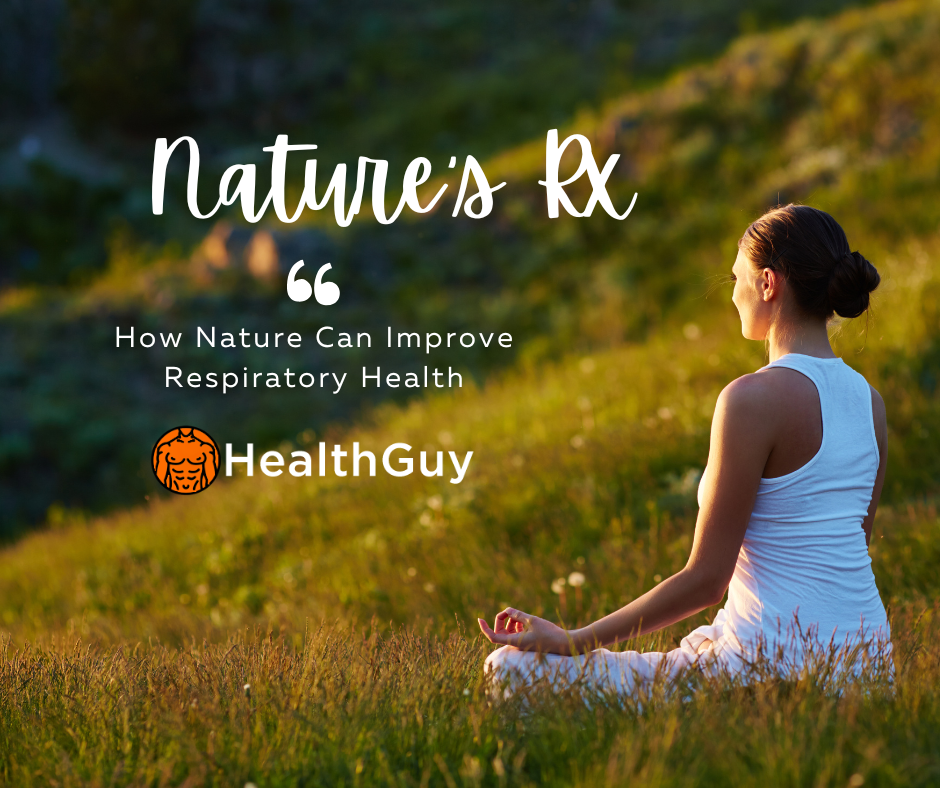
Nature’s Rx: How Nature Can Improve Respiratory Health
As humans, we spend most of our time indoors, surrounded by technology and modern conveniences. While this may be comfortable, it may not always be good for our health, especially when it comes to our respiratory system. Spending time in nature, on the other hand, can be incredibly beneficial for our respiratory health.
One of the most important benefits of spending time in nature is the fresh air. When we are outside, we breathe in air that is cleaner and more oxygen-rich than the air indoors. This can help to improve the function of our lungs, as well as reduce our risk of respiratory infections and diseases.
In addition to the quality of the air, spending time in nature can also help to reduce stress and anxiety. When we are stressed or anxious, our breathing becomes shallow and rapid, which can make it difficult to get enough oxygen into our lungs. Spending time in nature, whether it’s going for a walk in the park or hiking in the mountains, can help to calm our minds and slow our breathing, making it easier to get the oxygen we need.

Another benefit of spending time in nature is that it can help to reduce our exposure to air pollution. When we are indoors or in urban areas, we are often exposed to high levels of air pollution, which can be harmful to our respiratory health. Spending time in nature, on the other hand, can help to reduce our exposure to these pollutants and improve our lung function.
There are also specific activities in nature that can be particularly beneficial for our respiratory health. For example, hiking and other aerobic activities can help to strengthen our lungs and improve our breathing. Breathing exercises, such as those practised in yoga or tai chi, can also help improve lung function and reduce stress.
If you’re wondering how spending time in nature can benefit your respiratory system, here are some extra details to consider:
- Exposure to negative ions: Negative ions are molecules that are abundant in natural environments such as forests and waterfalls. They are believed to have a beneficial effect on respiratory health by helping to clear the airways and improving lung function. Studies have shown that spending time in environments with high levels of negative ions can help to reduce symptoms of respiratory diseases such as asthma and chronic obstructive pulmonary disease (COPD).
- Improved mental health: Spending time in nature has been shown to have a positive effect on mental health by reducing stress, anxiety, and depression. This can in turn benefit respiratory health, as stress and anxiety can cause shallow breathing, which can lead to reduced lung function.
- Enhanced immune function: Exposure to natural environments has been shown to boost immune function, which can help to reduce the risk of respiratory infections. A study conducted in Japan found that people who spent time in forest environments had increased levels of natural killer cells, a type of white blood cell that helps to fight off viruses and other pathogens.
- Increased physical activity: Spending time in nature often involves physical activity, such as hiking or cycling. Regular exercise can help to improve lung function, as well as reduce the risk of respiratory diseases such as COPD and lung cancer.
There have been several studies on the benefits of spending time in nature for respiratory health.
- One study conducted in Japan found that spending time in a forest environment, also known as “forest bathing,” can improve lung function and reduce the risk of respiratory diseases. The study found that forest air has a higher concentration of beneficial compounds called phytoncides, which can help to reduce inflammation in the lungs and improve breathing.
- Another study conducted in the United Kingdom found that people who live in areas with more green spaces, such as parks and forests, have better respiratory health than those who live in areas with less green space. The study found that exposure to green spaces can help to reduce the risk of respiratory diseases, as well as improve lung function.
- A study conducted in the United States found that hiking and other aerobic activities in nature can help to improve lung function and reduce the risk of respiratory diseases. The study found that regular aerobic exercises, such as hiking or cycling, can help to strengthen the lungs and improve breathing.
Overall, these studies suggest that spending time in nature can be beneficial for respiratory health, by improving lung function, reducing inflammation, and reducing the risk of respiratory diseases. So, next time you have the opportunity, take a walk in the park or go for a hike in the mountains – your lungs will thank you!
In summary, spending time in nature can be incredibly beneficial for our respiratory health. By breathing in fresh, clean air and reducing our exposure to air pollution, we can help to improve our lung function and reduce our risk of respiratory diseases. Additionally, by reducing stress and anxiety, we can improve our breathing and overall respiratory health. So, next time you have the chance, take a walk in the park, or go for a hike in the mountains – your lungs will thank you!
